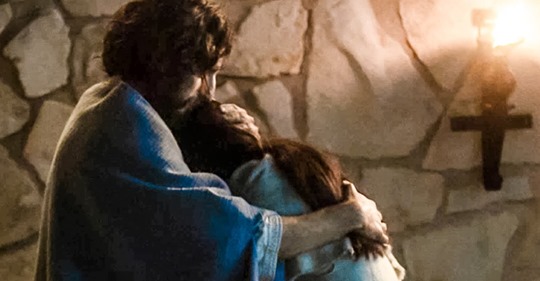
My goal in high school was to get to college, and high school was just a stepping stone to get there. It was not as much of a social opportunity as it was for some. Don’t get me wrong, I enjoyed it. Played in a lot of sports, I had a wonderful education and made some friends. But because I did not live in the same town, I went to a Catholic High School in the next town over, I was not really part of any one group. I tended to float between different groups. I tended to do the same thing in college and veterinary school. Even today, Elise and I enjoy a variety of people and this often results in a linking of people from the different groups we travel in. I have friends that I ride motorcycles with and friends who are veterinarians. We have church friends and synagogue friends.
And what this means is that people from these groups that we are part of get to meet one another. And exchange their backgrounds, their interests and beliefs. It is an opportunity to transcend division. To see things through the eyes of people you ordinarily would not associate with. In a sense, to unify just a bit.
Under Kings David and Solomon (I know, sounds a bit like a law firm), Israel was a united, and powerful, nation. However, towards the end of his reign, Solomon married numerous women from pagan tribes and he gave in to worshiping their idols. God vowed to punish him after his death by bringing division to Israel. After Solomon died, tension mounted between the north and the south leading to the formation of the two distinct kingdoms.
Israel divided into the Northern Kingdom (Israel or also noted as Ephraim, after the major tribe in the north) and the Southern Kingdom (Judah, again named after the major tribe in the south). In the year 722 B.C. Assyria captured the Northern Kingdom. The ten tribes were dispersed and became known as the ten lost tribes of Israel. About 150 years later, the Southern Kingdom’s two tribes were captured by King Nebuchadnezzar of Babylon. He removed the more “elite” class back to Babylon, leaving a remnant in place after the city, and the temple, were destroyed.
Ezekiel writes today about Israel returning to Jerusalem as a united people, reforming the kingdom into one and never being divided again. The chosen people will never again worship idols or transgress against God. They will be His people and He will be their God. The section in Ezekiel just prior to today’s portion is the famous story of the dry bones coming to life and being brought together and reforming into a nation through the breath of the Spirit.
In the book of 2nd Kings, there is a story of Naaman who was a military leader from Syria who was afflicted with leprosy. A Jewish slave girl directed him to go to the land of Israel and eventually meet up with the prophet Elisha. The prophet directs him to bathe in the Jordan river, and he is cured. He praises the one true God and brings a load of soil back to Syria so he can worship the God of Israel on native soil since he believed he could only experience the Israeli God in Israel.
In John, the apostle talks about Jesus dying to save and protect Israel with His death serving to gather the dispersed Hebrews into one. But, in this case, that unity is not a sovereign one but one of the spirit. In the story of the Samaritan woman at the well, she tells Jesus that the Jews believe worship of God is to happen in Jerusalem and not on the mountain of the Samaritans. Jesus tells her that the day is coming when all will worship God from their heart, wherever they happen to be. Ending the division between the Jews and the Samaritans, between the Jews and Gentiles.
We are experiencing something now in our world unlike anything we have seen in our lifetimes. We are mostly isolated from one another and the institutions that we have come to rely on are no longer available in the same way they once were. In many ways it is a frightening time. For some, this is an opportunity to point fingers about who is to blame and what should or should not be done. Threatening to bring even more division above the physical separation we are experiencing.
But we are also seeing people come together, even though they may be thousands of miles apart. Mass is celebrated via live streaming. People are sharing choir recitals that are individually recorded then produced into a beautiful harmony. Hotels are giving space to the ill and the homeless. People are forgiving debts to those who cannot work. As it has been throughout all of history, we can choose to find those things that divide us or we can come together in unity. We can let fear drive us apart or we can rely on the hope that comes from our faith in Christ. An old country music song stated “I never promised you a rose garden” and neither did Christ. Father Mike Schmitz in a recent homily said that God gives some of us miracles and to some he gives the gift of martyrdom. And our task is to look on each as an opportunity to display the glory of God to others. Because in the end we are all just on a journey home. We can either let the bumps along the way pit us against one another or they can serve to bring us together as one people united in the Kingdom.
